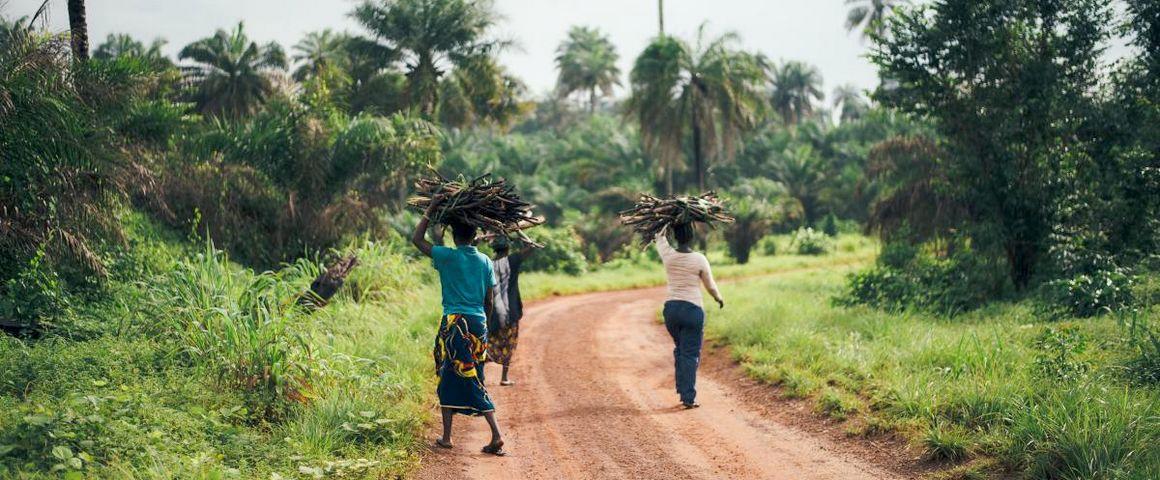- Home
- Worldwide
- CIRAD worldwide
- Projects
- CANALLS Project
Driving agroecological transitions in the humid tropics of Central and Eastern Africa through traNsdisciplinary Agroecology Living LabS - CANALLS

Sierra Leone - Annie Spratt © Unsplash
Issues
The humid tropics of Central and Eastern Africa hold great promise for a better food and nutrition security in Africa and beyond. With a rich variety of agroecological zones and farming systems, they are home to a large proportion of the rural population and a great diversity of living organisms, offering vital ecosystem services and great potential for sustainable development. But realising this potential requires addressing the complex environmental, social and economic challenges that these regions face, sometimes exacerbated by conflict and high vulnerability. In this context, CANALLS aims to foster agroecological transitions in the humid tropics of Central and Eastern Africa through transdisciplinary, multi-stakeholder Agroecology Living Labs (ALL). Living Labs are defined as open and user-centred innovation ecosystems based on a systematic co-creation approach, integrating research and innovation processes in real communities and settings.
Description
Eight Agroecology Living Labs (ALLs) are being set up initially in Burundi, Cameroon, the Democratic Republic of Congo and Rwanda, working alongside more than 20,000 women and men farmers and value chain stakeholders. The aim is to enable all these stakeholders to co-create and benefit from optimal combinations of agroecological practices focused on crops vital for livelihoods and economic development (cocoa, coffee, cassava, rice, maize). In parallel, the project engages in strong multi-stakeholder collaboration with rural communities, advisory services and governments to develop a holistic evaluation framework and assess the socio-economic and environmental performance of the co-created practices (taking into account trade-offs and synergies).
The evidence generated is used to build capacity and share knowledge (practice summaries, replication guidelines, policy recommendations) as well as to provide equitable, inclusive and sustainable business models and services and tools to facilitate market access and improve demand for agroecological products.
The vision of the project is to create an expanding network of ALLs that takes advantage of EU-African Union cooperation to conduct transdisciplinary research, scientific support and coordinated action to provide holistic solutions that contribute to creating favourable conditions for agroecological transitions.
Expected results
The expected outcomes of the CANALLS project are the following:
- living agroecology laboratories engaging multi-stakeholder communities in transdisciplinary research are established to identify and co-create conditions and tools to support agroecological transitions;
- practical tools are co-developed to identify combinations of agroecological practices adapted to the humid tropics of Africa, and to monitor and measure their socio-economic and environmental performance;
- services and marketing tools are co-designed to increase the demand for agroecological food products, and fair proposals and business models to ensure financial sustainability and facilitate market access;
- agroecological strategies adapted to the humid tropics of Africa are co-created, tested and evaluated, addressing the complex socio-economic and environmental challenges of food systems, in line with policy priorities;
- the adoption of agroecological practices is supported and strengthened, building on knowledge exchange, policy dialogues and coordination with key networks for dissemination, exploitation and replication of these practices.
Q-Plan, IITA, Eidgenoessische Technische Hochschule Zuerich, Hohenheim, Nibio, Rikolto International, Université catholique de Bukavu, Association paysanne pour le développement intégré au Sud-Kivu, Inera Congo, Association of German Development Services, Irad, Cameroon Forum for Agricultural Advisory Services (Camfaas), Scoopman-Coop/CA, Isabu, Capad Shirukubute, Rwanda Agriculture and Animal resources Development Board, Coped Ltd, Maggot Farm Production LTD, AATF, African Forum for Agricultural Advisory Services et Naturland























